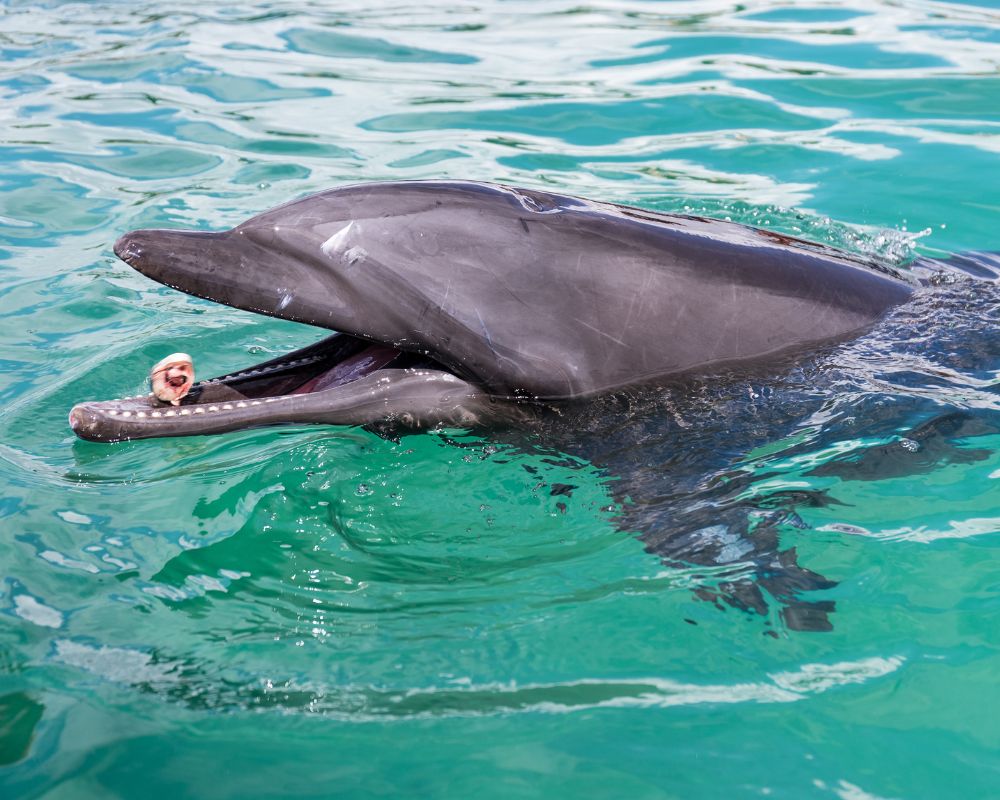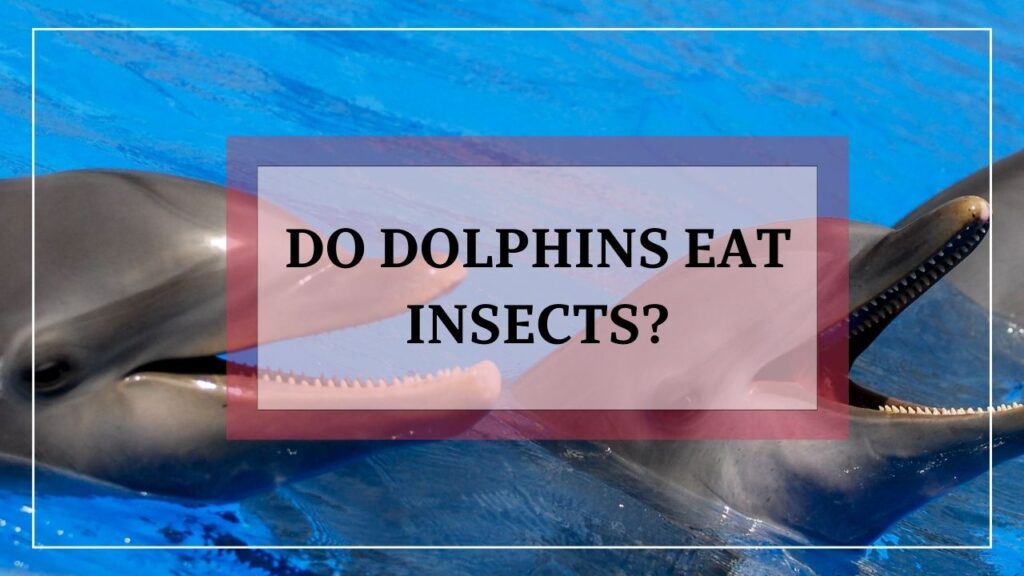Welcome, curious minds! We’re about to take a deep dive into the mysterious and fascinating world of dolphins. These creatures have captured our imaginations for years, but have you ever stopped to wonder what they eat?
I can tell you that the answer is more complex than you might think. One question that often comes up is whether dolphins eat insects. Today, we’re going to explore this topic and see what we can uncover. So grab your snorkel and let’s get started!
Do Dolphins Eat Insects?

While they may consume insects on occasion, it is not a regular part of their diet. Dolphins typically consume a variety of sea creatures, including fish, squid, and crustaceans, which provide them with the necessary nutrition for a healthy diet.
Diet Of Dolphins
Dolphins are known to have a varied diet, and they are opportunistic feeders. This means they will eat whatever food is available to them in their environment. Some common types of food that dolphins consume include fish, squid, and crustaceans. They have also been known to eat octopuses, shrimp, and even small sharks.[1]
Dolphins are active hunters, and they use their echolocation to locate prey. They also have sharp teeth that they use to catch and hold onto their prey. Once they have captured their food, they swallow it whole, as they do not have the ability to chew.
Insects In The Diet Of Dolphins
While dolphins are known to eat a variety of sea creatures, insects are not typically on their menu. However, there have been some instances where dolphins have been observed consuming insects.
Research studies have found that some species of dolphins have been known to eat insects, but it is not a regular part of their diet. Dolphins may consume insects when they are in the vicinity of freshwater or land, where insects are more abundant. However, this is not a common occurrence, and it is not considered to be a significant part of their diet.
Do Dolphins Benefit from Eating Insects?
While dolphins may occasionally consume insects, the question remains: do they actually benefit from eating them? Let’s take a closer look at some potential benefits and drawbacks.
Potential Benefits Of Eating Insects For Dolphins
- Nutritional value: Insects are rich in nutrients such as protein, vitamins, and minerals. Some species of insects, such as crickets and mealworms, have even been touted as sustainable and nutritious sources of protein for human consumption. It’s possible that these same nutritional benefits could apply to dolphins, especially if their regular prey sources are scarce.
- Variety in diet: Eating a variety of foods can help ensure that dolphins are getting all of the nutrients they need to stay healthy. Adding insects to their diet could provide some much-needed variety.
Comparison Of The Nutritional Content Of Insects And Other Types Of Prey
- Fish: Fish are the primary source of food for many species of dolphins. They are rich in omega-3 fatty acids, which are essential for brain and heart health. However, fish can also be high in mercury and other toxins, which can be harmful to dolphins in large quantities.
- Squid: Squid is another common prey item for dolphins. They are high in protein and low in fat, making them a good source of lean protein. However, they are also relatively low in nutrients compared to other types of prey.
- Crustaceans: Crustaceans, such as crabs and shrimp, are also important food sources for dolphins. They are high in protein and contain a variety of vitamins and minerals. However, they can also be high in cholesterol and other harmful substances.
- Insects: Insects are a relatively new addition to the list of potential prey items for dolphins. While they are rich in nutrients, they are also relatively low in fat and may not provide the same level of sustenance as other types of prey.
The Risks Of Eating Insects To Dolphins
While it’s true that dolphins can potentially benefit from eating insects, there are also some risks to consider. In this section, we’ll dive into the challenges that dolphins face when they consume insects as part of their diet.
Digestive Challenges
When dolphins consume insects, they may face some challenges digesting the exoskeletons of the insects. Exoskeletons are the hard outer shells of insects that provide them with structure and protection. Because these shells are made of chitin, a complex carbohydrate that is difficult to break down, dolphins may struggle to digest them properly.
However, dolphins are well-equipped to deal with this challenge. They have powerful digestive systems that can break down tough prey, such as crustaceans and other animals with hard shells. Some studies have suggested that dolphins may use their powerful jaws to crush the exoskeletons of insects before consuming them, making them easier to digest.
Risk Of Consuming Toxic Insects
Another potential risk of consuming insects is the possibility of consuming toxic species. Not all insects are safe for consumption, and some may contain toxic compounds that could be harmful to dolphins.
For example, some insects may produce toxins as a defense mechanism to deter predators. If dolphins consume these toxic insects, they may experience negative health effects, such as organ damage or even death.
However, it’s worth noting that dolphins are intelligent animals and may be able to distinguish between safe and toxic insects. Additionally, not all species of insects produce toxins, so the risk of consuming a toxic insect is relatively low.
Impact On The Ecosystem
Eating insects can have an impact on the balance of the ecosystem. If dolphins consume too many insects, this could potentially harm other species that rely on insects as a food source.
For example, if dolphins consume a large number of insects, this could lead to a decrease in the insect population. This, in turn, could impact other animals that rely on insects as a food source, such as birds and bats.
Conclusion
In conclusion, while dolphins are known for their preference for fish and squid, research suggests that they may also consume insects as part of their diet. While there are potential benefits to consuming insects, such as their high nutritional content, there are also risks to be considered, such as exposure to pesticides and toxins.
It’s important to note that despite the lack of definitive evidence, it’s unlikely that insects are a significant portion of a dolphin’s diet. However, further research is needed to fully understand the role of insects in the diet of dolphins.

